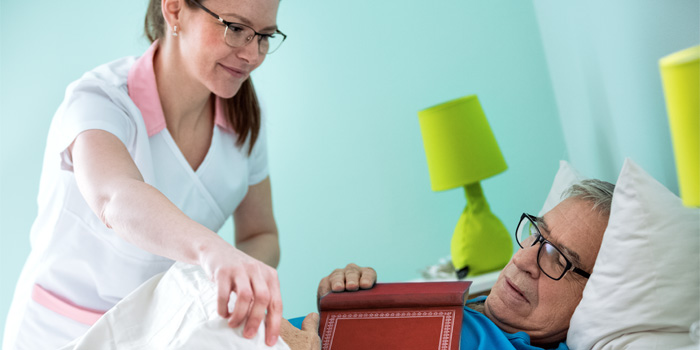Most in-home care is delivered in four to eight-hour shifts. And, for most seniors this is enough to get them through the day with their essential needs well taken care of.
Others need more help. Not only for the patients, but the families who love them. Being a family caregiver requires a lot of time to make sure that an elderly family member has everything he or she needs. Without help, this can result in significant burn-out. When a senior’s condition results in the need for continual care, it can become unmanageable for a family to accommodate.
The consideration at this point becomes a choice between aging in place where the senior remains in familiar surroundings and still has the care he or she needs or being placed in an institution like a nursing home where the care is continual (though shared) but away from that which is familiar. And, when comparing the cost, 24-hour home care generally wins that battle.
As may seem logical, 24-hour home care is a special type of care in which caregivers are with your elderly family member around the clock, seven days a week. Almost always those who opt for this type of service remain in their own homes. Often people who need 24-hour care have significant health issues and/or dementia.
Some older people need help with personal care, bathing, mobility, meal preparation, house maintenance (laundry), fall mitigation or transportation. The beginning of any such relationship is an assessment of the needs of the patient and the skills that need to be provided by an agency. As time goes on, periodic reassessments will be required.
Beyond the mechanics of serving the needs of the patient are the psychological elements. Sometimes seniors have anxiety about being alone. Loneliness is also a significant consideration. Knowing that there is another caring human in the environment can be greatly reassuring both for the senior and the family. Once issues of anxiety and other challenging emotions are addressed, all areas of your senior’s life will likely show improvement.
An issue not to be overlooked is that of safety. Having a caregiver there all the time greatly reduces the possibility of accidents, most importantly, falls. Professional caregivers are trained in all manner of hazard prevention that are typical challenges for older people. Keeping a senior’s home clean and comfortable goes a long way toward safety.
A well-structured plan of care is also flexible. There will be some days when the patient needs lots of attention. On others he or she will be fine doing many things independently. Over time the situation will change and adjustments will need to be made. Establishing a set routine will allow for minor adjustments without creating a stressful situation for the senior. And, changes in the patient’s health will necessitate changes in the levels of care needed, as well.
If family members are losing sleep as a result of needing to be “on call” for a loved one, 24-hour care can be an important option. This is particularly true if an elderly family member does not sleep well or wanders or puts him- or herself in dangerous situations. Having the right level of care for your senior will go a long way toward keeping him or her safe and comfortable and the family happy with the knowledge that that is the case.

